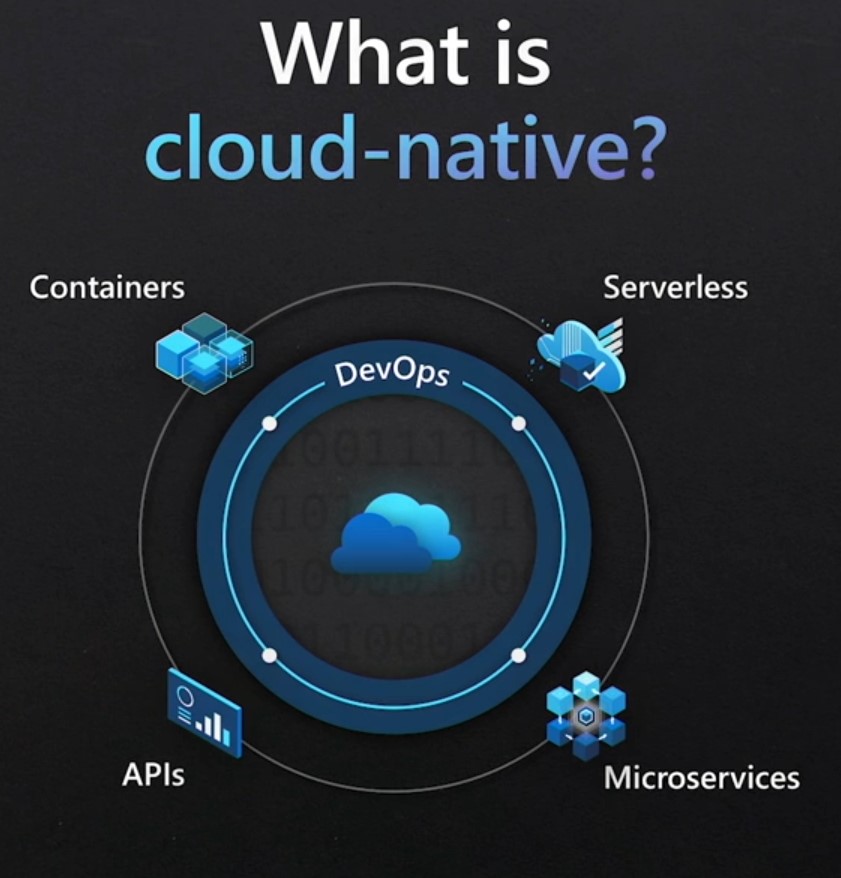There are many options for developers to build and deploy cloud native and containerized applications on Microsoft AZURE. This post outlines why cloud native is important for organizations and describe the options like AZURE Container Apps and AZURE Kubernetes Service.
What is Cloud-Native for Application Development?
CNCF cloud native computing foundation envisions cloud-native applications to be loosely coupled , resilient , manageable and observable. Cloud-Native Apps should minimize the engineering effort to achieve the business benefits.
Why Cloud-Native is important?
Cloud native design patterns allows to achieve the agility , efficiency and speed of innovation that you need to deliver for your businesses. Cloud native applications allows you to take advantage of containers , serverless technology , microservice based architecture and API based solutions to enable you to build and iterate solutions faster. These Cloud native apps are delivered using highly automated Dev-Ops based approach which enables to continuously deploy features that can reach to your customers.
- It allows your application to scale to meet any demand
- It allows your application to achieve greater resiliency
- It allows your developers to deliver better apps faster
- It allows to provide greater reliability to you and your customers
What Options that AZURE to Build Cloud-Native Applications?
AZURE provides all you need to build the next cloud-native application. The managed Kubernetes , serverless containers and serverless functions to plan and scale managed databases with high-quality vision. for example, when you think about building microservices, you may see Kubernetes as the only choice , Kubernetes is powerful but it also create a daunting learning curve. AZURE container apps is an alternative where you can deliver using AZURE container Apps, where you can deliver the benefits of cloud-native Kubernetes in a stream lined, serverless product. Apart from AKS and Azure container apps other options are AZURE functions, AppServices , Azure Container Instances(ACIs) , AZURE Redhat OpenShift.
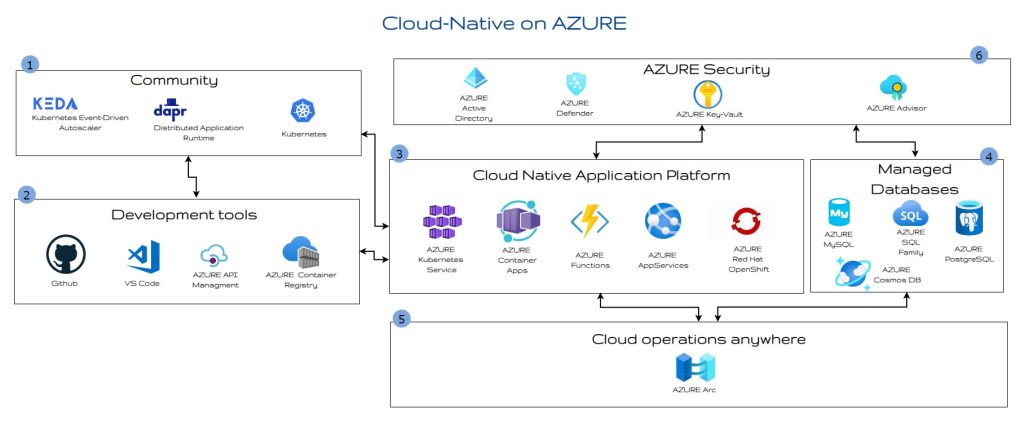
AZURE Container Apps overview
AZURE Container Apps is serverless container based hosting service that allows you to focused on Apps instead of worrying about managing the underlying cloud infrastructure. It supports event driven scale . meaning, you can scale down instances to zero when not using it. you can scale up instances dynamically when you are getting a lot of incoming requests. You can encapsulate the microservice best practices such as secure server to server communication and reliable messaging through pub\sub.
AZURE container Apps helps you to
- Build modern apps on open source
- Focus on apps, not on infrastructure
- Scale dynamically based on events
Sample Application in AZURE Container App Environment
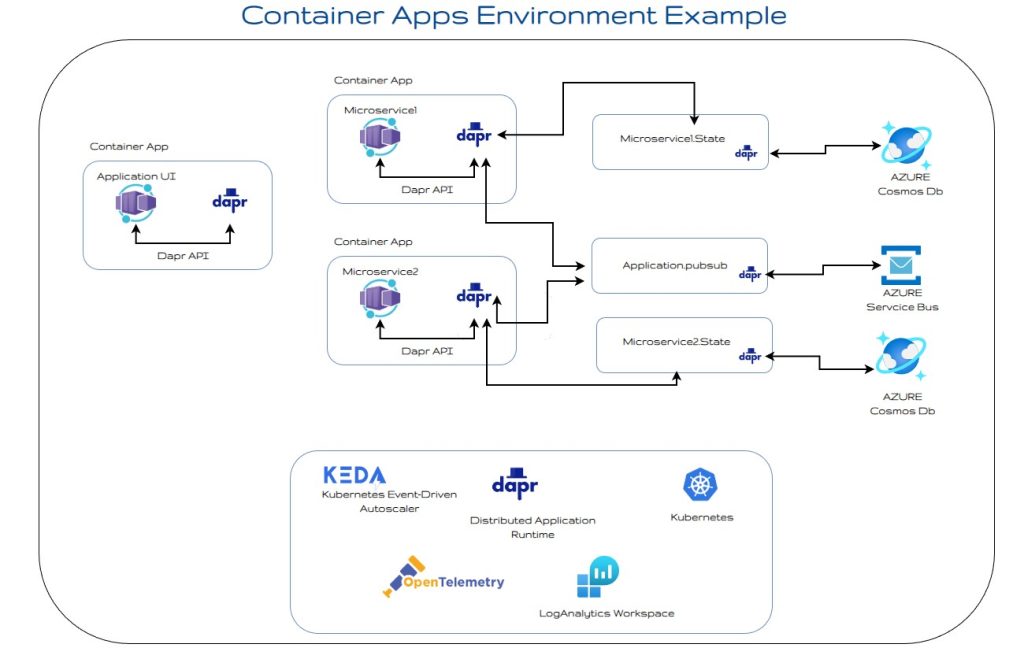
AZURE Container AppService is built on the strong open source foundation of the Kubernetes eco-system. It integrates well with projects like DAPR (Distributed Application Runtime), KEDA (Kubernetes Event-Driven Autoscaler) and Envoy. you can enjoy serverless scale based on events that scale to your specific requirements and customer demand pattern.
Building AZURE Container App on open source unlocks the app portability powered by open standards and open APIs. The distributed application runtime with DAPR is a great example for encapsulating best practices for cloud-native microservice standards, including service discovery, upsell message broker integration , encryption, observability and more , DAPR component model decouples the tech stack from your code making it agnostic to hosting environment and enabling app portability.
AZURE Container App does not depend on fixed programming model. you can bring any Linux container and use your favorite programming language. It is a best developer experience to contribute your productivity. AZURE container AppService offering a combination of robust built-in http-based autoscaling in and out. event driven auto-scale to run containers that may be processing messages from tunes, streams or databases. you can scale containers based on http traffic.
what can you build with AZURE Container Apps?
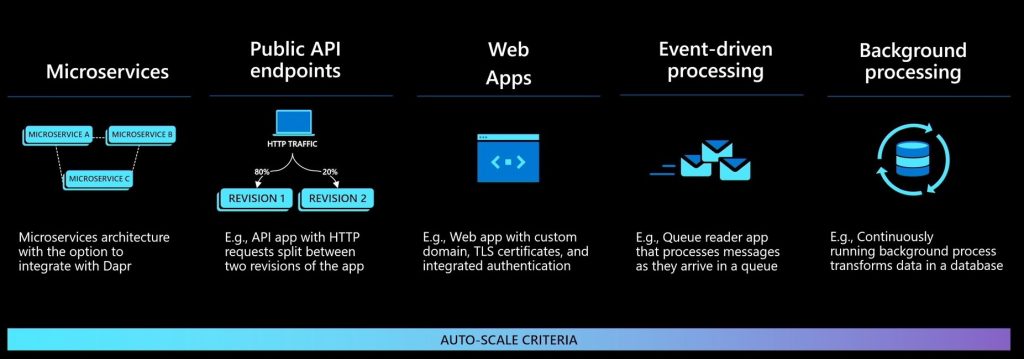
There is no perfect solution to meet every requirement and use cases. we are on digital transformation journey shaping the future of fashion and design. The approach is to
transition modern workloads in cloud by refactoring and re-architecting the application. Event driven architecture and API driven first are foundational for our Microservice platform. It simplifies microservice development experience.
When should i use AZURE Container APPS vs AZURE Kubernetes Service?
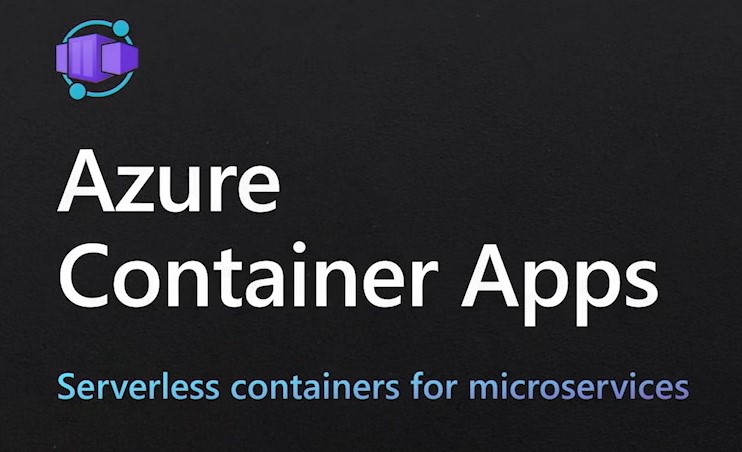
General guidance on choosing AZURE Container APPs – choose this option when you don’t have to use underlining Kubernetes APIs. If you would like to build Kubernetes-style applications and don’t require cluster management and access to native APIs. If you want to build container AppService that provides the fully managed experience that contains the best practices. If you are planning to develop microservices, public API endpoints, Web applications and event-driven architecture applications then AZURE Container APPs is the solution.
Azure Kubernetes Service provides a fully managed Kubernetes option in AZURE , use this option when you want to access Kubernetes API and want to take responsibility for cluster configurations and operation.
Future application development is based on cloud native so it is important to understand and adopt the available options in AZURE for your application development. Following Github repository outlines all the steps that required to deploy an application using Azure Container Apps.
